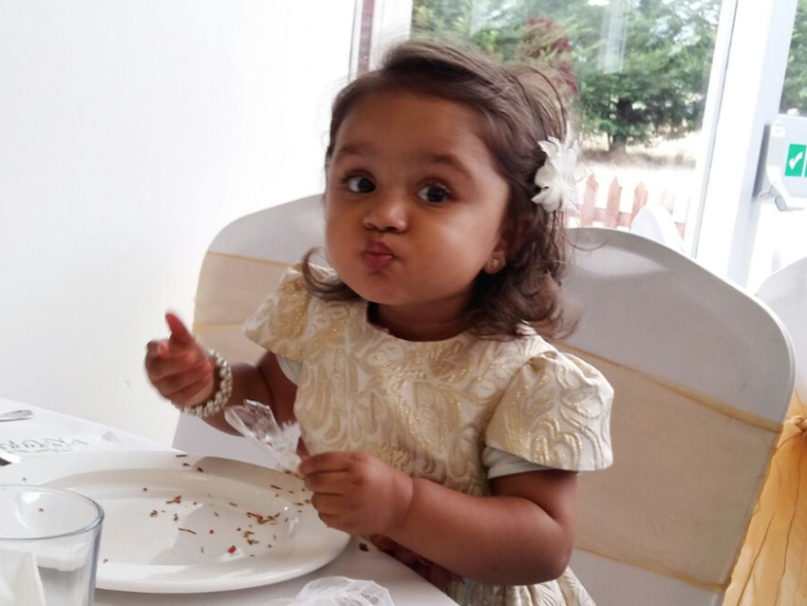(RNS) — It’s not difficult to find examples in these dark times of people with cognitive disabilities being discarded. The New York Times recently told the story of patients with dementia being “dumped like trash” from nursing homes into unregulated boarding houses so the nursing homes could take more lucrative patients with COVID-19. One patient with dementia was found wandering the streets of Los Angeles.
But every so often, if we look hard enough, we find a story in which those with cognitive disabilities get a break.
Many readers will be familiar with the cases of Alfie Evans and Charlie Gard, both British toddlers from working class and deeply religious Christian families. They both had profound cognitive disabilities related to very serious neurodegenerative disease. In both cases, the U.K. medical and legal systems decided the two boys could not benefit from their lives and that life-sustaining oxygen, nutrition and hydration should be withdrawn.
In both cases, however, their parents thought that, since they were in no danger of dying and likely couldn’t even feel the treatments they were getting, ending treatment was tantamount to euthanasia. The boys’ parents refused to accept the doctors’ advice and pointed out that medical professionals in Italy — Pope Francis publicly advocated for them to be transferred — and the U.S. were both prepared to try experimental therapies. If these attempts didn’t work, the organizations abroad would offer the boys a dignified death when their time came.
Both cases caused intense debate, but Alfie and Charlie, subjects of the British crown, were forcibly held against the will of their parents. Their treatment was withdrawn, and they died. Sometimes even getting a break, in the form of international attention to your medical plight, doesn’t work.
But another similar story from the U.K. had a very different ending.
Five-year-old Tafida Raqeeb sustained a very serious brain injury such that, according to the National Health Service hospital treating her, “she has no awareness and, with no prospect of recovery, life support should be withdrawn.”
Like Alfie’s and Charlie’s parents, Tafida’s are very religious — and they obtained religious ruling from the Islamic council of Europe stating that it would be a “great sin” and “absolutely impermissible” to consent to the removal of her life support. Also like Alfie’s and Charlie’s parents, they managed to find a cost-free opportunity to travel to Italy for treatment of their child.
They argued in court that the National Health Service was detaining their child unlawfully — again, just as Alfie’s and Charlie’s parents did. But the judge in Tafida’s case sided with her parents and not the National Health Service. Though he was persuaded by medical opinion that Tafida’s situation was “irreversible” and that medical treatment (which included a ventilator) imposed a large burden with virtually no or little benefit, the judge nevertheless respected the fact that Tafida and her family were religious and gave weight specifically to their religious views about the sanctity of human life for its own sake.
Despite the unfortunate fact that a secular court once again took it upon itself to determine a vision of the good for this religious family, the U.K. court’s granting of Tafida’s freedom was an astonishing and hopeful development.
And there is more good news: Just a few months after being transferred to a children’s hospital in Genoa, Tafida was moved out of intensive care and into a rehabilitation unit. At last update, she was being weaned off her ventilator and can now breathe on her own for an hour at a time. Her Italian doctors said that “it is extremely difficult to understand her degree of participation in the environment,” and when there is doubt, “we must always behave as if participation were greater than what we are able to perceive.”
They admit the relationship between neurological damage and future consciousness is murky and are therefore “trying to give this little girl time” to see if there is potential for improvement.” Humbly acknowledging the limitation of medicine in this area, they note that “much of that potential improvement is yet to be understood.”
Indeed, I wrote an RNS column a few months back explaining how, given the latest therapies and interventions, about 20% of patients deemed to be “vegetative” can actually regain consciousness. Such improvement would have been thought impossible just a few years ago. We understand so little about consciousness and how the mind works in relation to the brain and the rest of the body. Tafida’s doctors in Italy are right to acknowledge their limitations.
It is a terrible tragedy that Alfie’s and Charlie’s cases were not decided along the same lines as Tafida’s. One German doctor who was willing to treat Alfie put the foundational concern well:
Because of our history in Germany, we’ve learned that there are some things you just don’t do with severely handicapped children. A society must be prepared to look after these severely handicapped children and not decide that life support has to be withdrawn against the will of the parents if there is uncertainty of the feelings of the child, as in this case.
Think the invocation of Nazi Germany is too dramatic? In 2016, Dutch doctor Marinou Arends euthanized a patient with dementia according to her previous medical directive, despite her telling the doctor three different times that now she no longer wanted euthanasia. Arends, ignoring her new request, decided that her suffering was just too much and euthanized her anyway, making her own judgement that it was “for the best.”
All fellow members of the human family are equal in dignity — regardless of their level of ability or contribution to society. In an ableist and consumerist throwaway culture that prefers to locate the value of our lives in our rationality, autonomy and productivity, religious traditions such as Christianity and Islam must continue to witness to their preference for life for the most vulnerable members of the human family who cannot speak up in their own defense.






